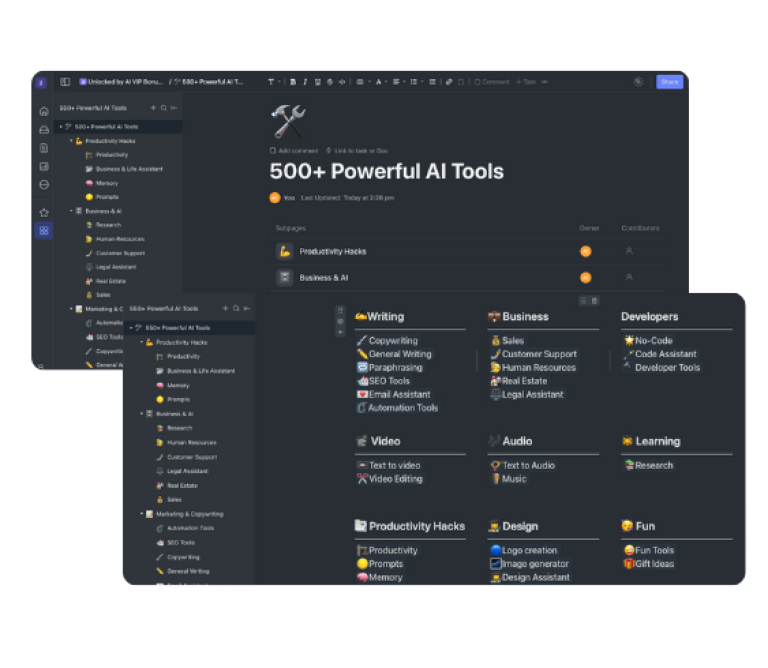Want to Start Your Blog (the Right Way)?
Starting a blog can be both exciting and overwhelming, especially when it comes to choosing the perfect blog niche.
This guide will walk you through the process of picking a blog niche and offer you 61 profitable and popular blog ideas and niche ideas to get you started.
So let’s dig in.
What is a blog niche?
A blog niche is a specific topic or area of interest that a blog focuses on. It is the central theme around which all the blog’s content is created and revolves.
By choosing a specific niche only, bloggers can cater niche blogs to a particular target audience, establish themselves as experts in that field, and differentiate their blog from the countless others on the internet.
Blog niches can range from broad subjects, such as health and wellness, to more narrow and specialized topics, like gluten-free baking or minimalist living.
Selecting a niche helps bloggers create content that appeals to a specific group of readers, making it easier to build a loyal and engaged audience.
Having a well-defined niche also enables bloggers to optimize their content for search engines, as they can target relevant keywords and phrases that their audience is searching for.
This can lead to increased visibility in search engine results, driving more organic traffic to the blog.
Furthermore, a focused niche allows bloggers to develop expertise and authority in their chosen fields.
This credibility can result in opportunities for monetization, such as sponsored content, affiliate marketing, or selling digital products, as readers are more likely to trust recommendations and advice from an expert in the niche.
Write Down a List of All the Things You’re Interested In
Begin by listing all your interests, hobbies, and experiences.
This will help you identify potential niche ideas that you’re passionate about.
Remember, you want to choose a topic that you know a reasonable amount about, at least enough to hold a conversation on the subject.
You can start by: Brainstorming your passions
Take some time to think about the things that excite you, the activities that make you lose track of time, and the topics you enjoy discussing with others.
These can be anything from your favorite hobbies to subjects you’re knowledgeable about. Make a list of at least 10-15 items.
Consider your skills and expertise
What skills have you developed in your professional or personal life that you could share with others?
Think about the areas where you excel or have received compliments from others. Add these to your list.
Analyze your list
Take a closer look at your list and group similar items together. This will help you identify patterns and possible niche ideas.
For example, if you’ve listed “cooking,” “healthy eating,” and “meal planning,” you may have identified a potential niche in the food and health space.
Rank your interests
Once you’ve grouped your list, rank your interests based on your passion and knowledge level.
This will help you prioritize which niche ideas to explore further.
Ask yourself key questions
As you review your ranked list, consider the following questions:
- Will I love writing about this topic one year and 50+ posts from now?
- Are there other people who want to read about this topic?
- Is there potential for monetization in this niche?
Reflecting on these questions will help you narrow down your list and identify the most promising niche ideas.
Consider Your Life Experience
Consider your past jobs, hobbies, and life experiences. These can often provide valuable insight into potential niches.
Your unique perspective may give you an edge in creating content that stands out from the competition.
Here’s how to deep dive into your history to uncover the unique perspective that sets your blog apart:
- Review your resume: Take a look at your resume or CV and think about the various jobs you’ve held, the skills you’ve gained, and the industries you’ve been involved in. Note any areas where you’ve developed expertise, acquired certifications, or received awards.
- Reflect on your hobbies: What hobbies have you pursued over the years, both past and present? Have you taken up a new hobby recently or returned to an old one? Make a list of your hobbies and consider how they could contribute to your blog’s content.
- Consider your life milestones: Have you reached any significant milestones in your life, such as getting married, having children, buying a house, or starting a business? These milestones can offer a wealth of knowledge and experiences that may appeal to your audience.
- Think about your challenges and achievements: What obstacles have you overcome or successes have you celebrated? Your personal journey can inspire and motivate your readers, making your blog more relatable and engaging.
- Evaluate your unique perspective: As you reflect on your life experiences, think about the unique perspective you bring to the table. How have your experiences shaped your worldview, values, and opinions? How can you leverage this perspective to create compelling, authentic content?
- Combine your experiences: Look for ways to blend different aspects of your life experience to create a unique niche. For example, if you’ve worked in the tech industry and have a passion for fitness, you could create a blog focused on fitness technology and gadgets.
- Test your ideas: Share your potential niche ideas with friends, family, or online communities to gauge their interest and gather feedback. This can help you fine-tune your ideas and ensure they resonate with your target audience.
Run Through a List of Perennially Popular Topics
Some topics are evergreen, meaning they always attract an audience.
Examples include personal finance, health and wellness, and travel.
Think about whether any of these perennially popular topics align with your interests and expertise.
As you explore potential niches, consider whether any of these timeless topics align with your interests and expertise. Here’s how to go about it:
- Familiarize yourself with evergreen topics: Begin by reviewing a list of popular evergreen topics. Some examples include:
- Personal Finance
- Health and wellness
- Travel
- Parenting and family
- Relationships and dating
- Home improvement and décor
- Technology and gadgets
- Personal and professional development
- Hobbies and crafts
- Cooking and food
- Evaluate your interest and knowledge: Reflect on your passions, skills, and experiences to determine whether any of these evergreen topics resonate with you. Consider whether you have a unique perspective or expertise to offer in any of these areas.
- Identify potential subniches: Within each evergreen topic, there are numerous subniches that cater to specific interests and needs. For example, within the travel niche, you could focus on budget travel, luxury travel, solo travel, or family vacations. Brainstorm potential subniches based on your experiences and preferences.
- Assess the competition: Keep in mind that evergreen topics are popular for a reason, which means there is often more competition in these niches. Conduct a competitive analysis to gauge the level of competition and identify opportunities to differentiate your blog from others in your chosen niche.
- Consider monetization potential: Evergreen topics often have a wide range of monetization opportunities, such as affiliate marketing, sponsored content, and digital products. Research the various ways blogs in your desired niche generate income and assess whether these strategies align with your goals and values.
- Strike a balance: While it’s important to choose a niche that has a broad appeal, it’s equally crucial to ensure that your blog has a unique angle or focus. This will help you stand out from the competition and attract a loyal audience.
Use Free Keyword Research Tools
Keyword research is crucial to understanding the popularity and competition of your chosen niche.
Using a free keyword research tool is an essential step in determining the popularity and competition of your chosen niche.
Tools like Ubersuggest or Google Keyword Planner can provide valuable insights into the relevant keywords and their search volumes, helping you make an informed decision about your blog niche.
To begin with, navigate to your preferred keyword research tool and enter your niche or subniche ideas.
These tools will generate a list of related keywords, along with their monthly search volumes and competition levels.
Analyzing this data will give you a better understanding of the demand for your chosen niche and the potential challenges you may face in terms of competition.
When evaluating the search volumes, it’s important to strike a balance between choosing a niche that has enough interest to attract a sizeable audience and one that is not overly competitive.
A safe number of monthly searches for a good blog niche typically ranges from 1,000 to 10,000, depending on your target audience size and the level of competition within the niche.
Keep in mind that smaller, focused niches may have lower search volumes but can still be highly profitable if they cater to a dedicated and engaged audience.
In addition to analyzing the search volumes, it’s crucial to consider the competition for your chosen keywords.
High competition may make it more difficult to rank well in search engine results, while low competition could indicate a lack of interest in the topic.
Aim to find a profitable niche, that has a healthy balance of demand and competition, allowing you to establish a strong presence in the market.
Using free keyword research tools and carefully examining the search volumes and competition for your chosen niche, you can make a more informed decision about the potential success of your blog.
This will not only help you attract a loyal audience but also increase your chances of long-term blogging success.
Now it’s time to validate the list you brainstormed
At this point, you likely have a list of potential niches that you’ve brainstormed.
The next step is to validate these ideas to find the perfect blog niche for you. To see how to guides achieve this, consider three key areas of focus during the validation process:
Personal Passion and Knowledge
Reflect on the topics you’ve listed and assess your level of interest and expertise in each one.
Are you genuinely passionate about these subjects?
Do you have enough knowledge to create valuable and informative content for your readers?
Blogging requires consistent effort and dedication, so it’s essential to choose a niche that you enjoy and can confidently discuss.
Audience Demand
Research the demand for the topics on your list to determine if there’s a sizeable audience interested in them.
Utilize tools like Google Trends, keyword research tools, and online forums to gauge the level of interest in each niche.
Additionally, explore social media platforms and observe the engagement levels on content related to your potential niches.
This will help you identify which topics are likely to resonate with a broader audience and have the potential for growth.
Monetization Potential
Evaluate the monetization opportunities for each niche on your list.
Are there affiliate programs or products available for promotion?
Can you create and sell your own digital products, like ebooks or online courses?
Look into the possibility of sponsored content or collaborations with brands within your niche.
Ensure that the very niche blog that you choose has ample avenues for generating revenue, as this will contribute to the long-term success of your blog.
By carefully examining these three areas of focus, you can identify the most promising niches on your list.
Once you have narrowed down your choices, spend time researching the competition within these niches.
Study other blogs and content creators in the same space to understand the type of content they’re producing and identify any potential gaps or unique angles you could explore.
Remember to be honest with yourself throughout this validation process.
Choosing the right blog niche is crucial to your blogging success, and the perfect blog niche idea will be a combination of your passion, audience demand, and monetization potential.
Plug Brainstormed Niches into Google Trends as a Start
Google Trends is a powerful tool that can help you validate and refine your niche ideas. Here’s how to make the most of it when exploring potential niches:
- Navigate to Google Trends: Go to the Google Trends website to begin your analysis.
- Enter your niche ideas: Type your potential niche topics into the search bar, one at a time. You can compare up to five niches simultaneously by adding them to the comparison list.
- Analyze interest over time: Examine the search interest graph for each niche idea to see how the topic’s popularity has evolved over time. Look for niches with consistent or growing interest, as these are more likely to remain relevant in the future.
- Adjust the time range: Use the time range filter to examine search interest over different periods, such as the past 12 months, five years, or since 2004. This will help you identify niches with staying power, as well as any seasonal trends that may impact your blog’s traffic.
- Explore regional interest: Check the regional interest data to see where your niche is most popular. This information can help you tailor your content to specific audiences and identify potential growth opportunities in different markets.
- Examine related queries: Review the related queries section to discover popular search terms and keywords associated with your niche. This can provide valuable insights into the specific topics and subniches that resonate with your audience.
- Compare niches: Use Google Trends to compare the popularity of different niches and identify the most promising options. Keep in mind that a smaller, focused niche may have lower search interest but still be highly profitable if it targets a dedicated and engaged audience.
- Cross-reference your findings: While Google Trends is a valuable starting point, it’s essential to cross-reference your findings with other tools and resources, such as keyword research tools and competitor analysis, to ensure you’ve chosen a niche with strong potential for success.
Check for Big Affiliate Programs
Consider if your potential niche has affiliate programs or products that you can promote.
Earning affiliate income can be a significant source of revenue for your blog, so it’s essential to ensure there are opportunities for monetization.
Checking for big affiliate programs is a crucial step in ensuring that your potential niche has ample opportunities for monetization.
Earning affiliate income can be a significant source of revenue for your blog, so it’s essential to explore the availability of relevant affiliate programs or products that you can promote.
To begin your research, start by visiting popular affiliate networks such as Amazon Associates, ShareASale, ClickBank, or Commission Junction.
These platforms feature a wide range of products and services that cater to various niches.
Browse their offerings to see if there are products or services that align with your potential niche.
In addition to browsing affiliate networks, you can also look for specific companies or brands that offer their own affiliate programs.
Visit the websites of businesses in your niche and check if they have an affiliate program or partnership opportunities.
Often, these programs can be found in the footer of the website or under a “Partners” or “Affiliate” section.
When evaluating affiliate programs, consider factors such as commission rates, cookie duration, and payment terms.
High commission rates and longer cookie durations can result in more lucrative earnings for your blog.
It’s also essential to ensure that the products or services you promote are of high quality and relevant to your audience, as this will help build trust with your readers and encourage them to make purchases.
Moreover, think about the potential for creating content around these products or services. Are there opportunities to write reviews, create tutorials, or share personal experiences?
Focusing on creating valuable content that resonates with your audience will not only help you drive traffic but also increase the likelihood of generating affiliate sales.
By thoroughly researching and considering the availability of big affiliate programs in your potential niche, you can ensure that there are ample opportunities for monetization.
This will play a significant role in the financial success of your blog and help you create a sustainable income stream from your blogging efforts.
Other Bloggers Aren’t Just Your Competition—They Can Also Be Your Collaborators
When diving into your chosen blogging niche, it’s essential to remember that other bloggers in the same field aren’t just your competition—they can also be valuable collaborators and sources of support.
As you explore the blogging landscape, take note of other content creators in your niche and consider the various ways you can benefit from each other’s expertise and audiences.
One of the many advantages of building connections with other bloggers is the opportunity to exchange guest posts.
Guest posting allows you to write content for another blogger’s site and vice versa, exposing your work to a new audience and potentially increasing your own blog’s reach.
It also helps establish your credibility within the niche, as other bloggers recognize and endorse your expertise.
Collaborations are another way to work together with fellow bloggers.
These partnerships can take many forms, such as joint webinars, podcast interviews, or co-created content pieces.
Collaborations not only help you tap into each other’s audiences but also enable you to learn from each other’s experiences and grow as content creators.
Furthermore, building relationships with other bloggers can lead to valuable mentorship opportunities.
More experienced bloggers can share their insights and advice on blogging strategies, monetization, or overcoming challenges in the niche.
In turn, you can offer your unique perspective and contribute to the community’s collective growth.
To foster these connections, engage with other bloggers on social media, leave meaningful comments on their blog posts, or attend networking events and conferences within your blog’s niche only.
Be genuine in your interactions and focus on building relationships based on mutual support and learning.
The Best Way To Choose a Profitable Blog Niche
Ultimately, the best way to choose a profitable blog niche is to find a balance between your passion, expertise, and audience interest.
You don’t want to end up starting an entire blog again from scratch after six months, so make sure you’re personally interested in the niche and that it has the potential for long-term growth and monetization.
When diving into your chosen niche, it’s essential to remember that other bloggers in the same field aren’t just your competition—they can also be valuable collaborators and sources of support.
As you explore the blogging landscape, take note of other content creators in your niche and consider the various ways you can benefit from each other’s expertise and audiences.
One of the many advantages of building connections with other bloggers is the opportunity to exchange guest posts.
Guest posting allows you to write content for another blogger’s site and vice versa, exposing your work to a new audience and potentially increasing your own blog’s reach.
It also helps establish your credibility within the niche, as other bloggers recognize and endorse your expertise.
Collaborations are another way to work together with fellow bloggers.
These partnerships can take many forms, such as joint webinars, podcast interviews, or co-created content pieces.
Collaborations not only help you tap into each other’s audiences but also enable you to learn from each other’s experiences and grow as content creators.
Furthermore, building relationships with other bloggers can lead to valuable mentorship opportunities.
More experienced bloggers can share their insights and advice on blogging strategies, monetization, or overcoming challenges in the niche.
In turn, you can offer your unique perspective and contribute to the community’s collective growth.
To foster these connections, engage with other bloggers on social media, leave meaningful comments on their blog posts, or attend networking events and conferences within your niche.
Be genuine in your interactions and focus on building relationships based on mutual support and learning.
61 Profitable Blog Niche Ideas
- Personal Finance
- Travel
- Health and wellness
- Parenting
- Home organization
- DIY and home improvement
- Fitness
- Food and cooking
- Fashion and beauty
- Interior design
- Career and job hunting
- Gardening
- Online business
- Mental health and Self-care
- Personal development
- Photography
- Technology
- Outdoor Adventure
- Home Decor
- Arts and crafts
- Eco-friendly living
- Budget travel
- Pet care
- Minimalism
- Wedding planning
- Language learning
- Sports and recreation
- Homeschooling
- Graphic design
- Tiny house living
- Vegan lifestyle
- Personal Productivity
- Digital Marketing
- Real estate investing
- E-commerce
- continue
- Freelancing
- Remote work
- Video editing
- Web development
- Nutrition and diet
- Zero waste lifestyle
- Life Coaching
- Social media management
- Astrology and spirituality
- Content creation
- Podcasting
- Stock market investing
- Cryptocurrency
- Renewable energy
- Robotics and AI
- 3D printing
- Virtual reality
- Subscription box services
- Video game reviews and guides
- Movie and TV show reviews
- Yoga and meditation
- Event planning
- Online course creation
- Fitness Coaching
- Sustainable fashion
Conclusion
Picking a profitable blog niche in 2023 requires balancing your passions, knowledge, and audience interest.
It’s essential to validate your blog post ideas with keyword research and explore potential monetization opportunities.
By following the steps outlined in this guide and considering the 61 profitable blog niche ideas provided, you’ll be well on your way to starting a successful blog that stands the test of time.
Remember, blogging success takes time and dedication, so choose a niche that will keep you engaged and motivated for the long haul. Good luck, and happy blogging!
FAQs
Q: How do I know if my chosen blog niche is profitable? A: To determine if a niche is profitable, consider the audience interest, monetization potential, and competition. Use keyword research tools and Google Trends to gauge popularity and search volume. Explore affiliate programs, other sponsored posts, content opportunities, and product creation possibilities for monetization.
Q: How important is it to be passionate about my blog niche? A: Passion plays a significant role in blogging success. When you’re passionate about your niche, you’re more likely to create engaging content consistently and remain motivated. It also makes the blogging process more enjoyable and rewarding.
Q: What are some evergreen topics that are always popular? A: Evergreen topics are those that consistently attract an audience. Some examples include personal finance, health and wellness, travel, and home improvement. These niches often offer long-term growth potential and monetization opportunities.
Q: Can I collaborate with other bloggers in my niche? A: Yes, collaborating with other bloggers in your niche is an excellent way to grow your audience, enhance your credibility, and learn from fellow content creators. Look for guest posting opportunities, joint webinars, podcast interviews, or co-created content pieces to foster connections and mutual growth.
Q: How can I validate my blog niche idea? A: Validate your blog niche idea by researching audience interest, competition, and monetization potential. Utilize Google Trends and keyword research tools to gauge the niche’s popularity and search volume. Additionally, evaluate existing blogs in your niche to identify gaps, unique angles, and collaboration opportunities.
Ready to take the leap and start your profitable blog journey?
Head over to zindolabs.com, where you’ll find all the tools, resources, and support you need to turn your passion into a thriving online business.
Don’t wait any longer—visit zindolabs.com today and embark on your blogging adventure with confidence and success!








